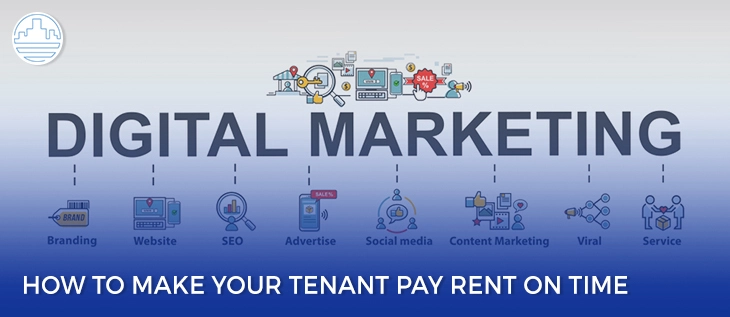Continuous Learning
Strategic Property Renting Maximizing Returns and Tenant Satisfaction

Unlocking Success: Property Renting Strategies
Property renting is not just about finding a tenant and signing a lease; it’s a dynamic process that involves strategic planning to maximize returns and ensure tenant satisfaction. Let’s delve into some effective property renting strategies that landlords can employ for a successful and sustainable rental venture.
Understanding the Rental Market Dynamics
Before diving into property renting, it’s essential to grasp the dynamics of the local rental market. Conduct thorough research on rental trends, tenant preferences, and pricing in the area. Understanding the market landscape will empower landlords to set competitive rents, attracting quality tenants while maximizing income.
Effective Property Marketing
In a world inundated with options, effective marketing is key to standing out. Utilize online platforms, professional photography, and engaging property descriptions to showcase the unique features of the rental. Platforms like Property Renting Strategies offer valuable insights and tools for landlords to enhance their property marketing efforts.
Tenant Screening for Quality Assurance
Quality tenants contribute to a smooth and trouble-free renting experience. Implement a robust tenant screening process to assess creditworthiness, rental history, and references. This proactive approach helps landlords select tenants who are more likely to pay rent on time and take good care of the property.
Setting Competitive Rental Prices
Balancing competitive rental prices is crucial for attracting tenants and optimizing returns. Conduct a comparative market analysis to determine the fair market rent for the property. Striking the right balance ensures the property remains attractive to potential tenants while generating a steady income for the landlord.
Responsive Property Maintenance
A well-maintained property not only attracts tenants but also contributes to tenant satisfaction and retention. Implement a responsive maintenance strategy, addressing issues promptly and proactively conducting regular inspections. A well-cared-for property fosters a positive tenant-landlord relationship and reduces turnover.
In fact, platforms like Property Renting Strategies offer resources and tools for landlords to optimize their property management practices, from marketing to maintenance.
Flexibility in Lease Terms
Flexibility in lease terms can be a valuable asset. Consider offering lease terms that cater to different tenant needs, such as short-term or month-to-month options. This flexibility can attract a broader range of tenants, including those seeking temporary housing solutions or uncertain about long-term commitments.
Incorporating Technology for Efficiency
Embrace technology to streamline property management processes. Digital platforms for rent collection, maintenance requests, and communication can enhance efficiency and provide a convenient experience for both landlords and tenants. Leveraging technology contributes to a modern and responsive property renting strategy.
Transparent Communication
Clear and transparent communication is the foundation of a positive landlord-tenant relationship. Establish open channels of communication, respond promptly to inquiries, and keep tenants informed about any changes or maintenance schedules. This transparency builds trust and contributes to a harmonious renting experience.
Continuous Learning and Adaptation
The property rental landscape is dynamic, and successful landlords stay ahead by continuously learning and adapting. Stay informed about changes in local regulations, market trends, and tenant preferences. This proactive approach positions landlords to make informed decisions and navigate
Navigating the Real Estate Transaction Journey A Comprehensive Guide
Navigating the Real Estate Transaction Journey: A Comprehensive Guide
Embarking on a real estate transaction can be both thrilling and daunting. Whether you’re a first-time homebuyer or seasoned investor, understanding the intricacies of the process is paramount. In this guide, we’ll break down the real estate transaction process into key stages, providing insights to ensure a smoother journey.
Preparation: Setting the Foundation
Before diving into the market, preparation is key. Define your goals, establish a budget, and identify your must-haves. Engage with a qualified real estate agent who can guide you through the process. Their expertise is invaluable in navigating the complexities of the market and ensuring you’re well-prepared for the journey ahead.
Property Search: Exploring Options
With goals set, it’s time to explore the market. Your agent will present potential properties based on your criteria. Take the opportunity to attend open houses, evaluate neighborhoods, and consider your long-term needs. This phase is about refining your preferences and finding a property that aligns with your vision.
Real Estate Transaction Process Link: Real Estate Transaction Process
As you delve into the property search, remember that knowledge is power. Understanding the nuances of the real estate transaction process empowers you to make informed decisions. Click the link above for a detailed breakdown of each stage and valuable tips to guide you through the journey.
Negotiation: Finding Common Ground
Once you’ve identified a property, the negotiation phase begins. Your agent will act as a mediator between you and the seller, working to find common ground on price and terms. Negotiation is a delicate dance, and having a skilled professional by your side increases the likelihood of reaching a favorable agreement.
Due Diligence: Investigating the Property
With an agreement in place, it’s time for due diligence. This phase involves a comprehensive inspection of the property. From structural assessments to reviewing legal documents, it’s crucial to unearth any potential issues. This step provides a final opportunity to address concerns before committing to the transaction.
Financing: Securing the Right Loan
For most buyers, financing is a critical component. Work closely with a mortgage lender to secure the right loan for your needs. Understanding your financial options, interest rates, and repayment terms is essential. A well-structured financing plan ensures a smooth closing process and positions you for long-term financial success.
Closing: Sealing the Deal
The closing marks the culmination of the real estate transaction process. During this phase, legal documents are signed, funds are transferred, and ownership officially changes hands. Having legal and financial professionals involved ensures a seamless closing, minimizing the potential for last-minute hiccups.
Post-Closing: Settling In
After the closing, it’s time to celebrate your new property. Ensure a smooth transition by organizing utilities, updating your address, and addressing any post-closing tasks. Your real estate journey doesn’t end at closing; settling into your new home is the beginning of a new chapter.
Continuous Learning: Adapting to Change
Real estate is dynamic, and staying informed is an ongoing process. Keep abreast of market trends, changes in

